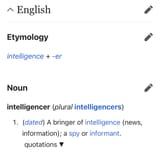Search Results
6/14/2025, 1:42:01 PM
The initiates are certainly given hints to the existence of a secret doctrine. Cornford is right to say that Socrates' failure to define knowledge in propositional terms in the Theaetetus definitely points the way towards the inadequacy of propositional knowledge to attain the final revelation. The revelation is the direct acquaintance knowing of the Forms, but of course this is left unstated. In passages, from the Republic, there is an indication that the truths revealed by dialectic are not ultimate. Socrates tells Glaucon that it appears that dialectic brings us to the end of philosophical enquiry. However, he then hints that there is a further path to ultimate knowledge that dispenses with images and symbols and attains truth directly. Glaucon is then told that, despite having the will to do so, Socrates is unable to show him this path:
[Q27] Tell me, then, what is the nature of this faculty of dialectic? Into what divisions does it fall? And what are its ways? For it is these, it seems, that would bring us to the place where we may, so to speak, rest on the road and then come to the end of our journeying. You will not be able, dear Glaucon, to follow me further, though on my part there will be no lack of good will. And, if I could, I would show you, no longer an image and symbol of my meaning, but the very truth as it appears to me.
This evidently hints at the type of intuition Kant denies in the Inaugural Dissertation when he observes, "No intuition of things intellectual but only a symbolic [discursive] knowledge of them is given to man".
[Q27] Tell me, then, what is the nature of this faculty of dialectic? Into what divisions does it fall? And what are its ways? For it is these, it seems, that would bring us to the place where we may, so to speak, rest on the road and then come to the end of our journeying. You will not be able, dear Glaucon, to follow me further, though on my part there will be no lack of good will. And, if I could, I would show you, no longer an image and symbol of my meaning, but the very truth as it appears to me.
This evidently hints at the type of intuition Kant denies in the Inaugural Dissertation when he observes, "No intuition of things intellectual but only a symbolic [discursive] knowledge of them is given to man".
Page 1
